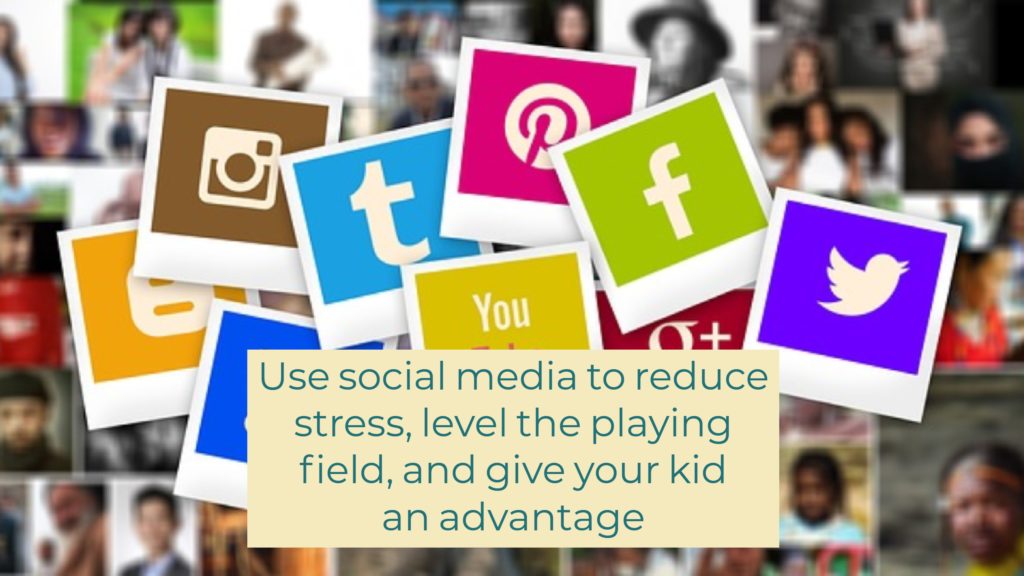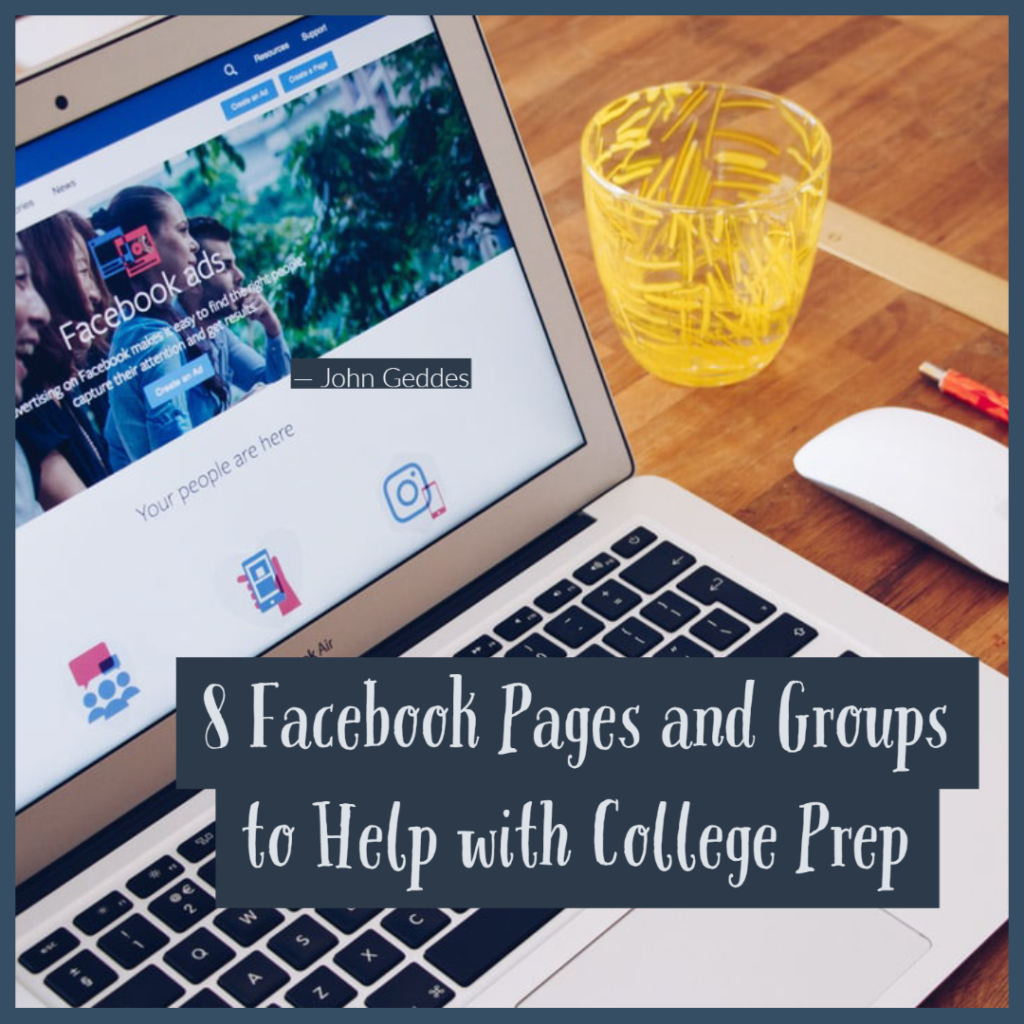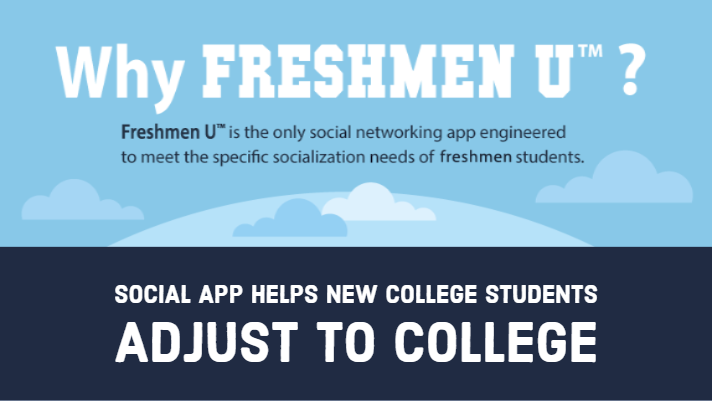
Do college admissions officers check prospective students’ social media feeds?
Yes, some do.
As a parent of a teenage boy or girl, should I panic?
No.
According to Kaplan Test Prep’s latest college admissions survey, about 35 percent of admissions officers check social media sites such as Facebook, Twitter, and Instagram. And of course, some report finding little nuggets of gold—the applicant who started a business with her mother—and some nuggets of less than gold—the applicant bragging about their partying exploits.
And with each Kaplan report, headlines scream the obvious while offering the obvious in terms of suggestions to parents for managing their child’s social media presence and brand. One writer, a corporate CEO, implores parents to undertake a sophisticated social media PR campaign complete with professional photography, oversite of all posts to assure alignment with strategic messaging and college application materials, website with weekly blog posts and videos, engage in search engine optimization practices, and use strategic social handles and email addresses.
No wonder parents and kids are so stressed out.
The fact is, there are ways to leverage social media that:
- Reduces stress rather than increases anxiety
- Demonstrates your child’s unique value to a college or university
- Levels the playing field and gives him or her an edge
In the following, we will help defang stress, leverage social media as an ally, and offer suggestions for innovatively using social media to level the playing field and give your child an edge that extends well beyond college admissions.
Defanging Stress
There are already too many sources of stress if you are a parent of a teen or an actual teenager. Social media as it relates to college admissions shouldn’t be one of them.
First, let’s put things in perspective. Did you start a business with your child? Does your child post photos on Facebook of him or her drinking and bragging about skipping school?
If the answer to both is no, you fall somewhere within normal. Social media, as are smartphones, is ubiquitous in the culture, especially for teens. And most teens post silly, gossipy things, things they are proud of, and things they think make them look cool or funny to their friends. Therefore, admissions counselors that look through applicants’ social media feeds know what teenagers are like. They work with them all day long.
What they look for in social media is a fuller picture of who that kid is. Is there positive information that didn’t make it into the essay or onto the Common App? Is there a clear warning sign that this kid is not college ready? Or are they like every other teenager in the country?
Second, while 35 percent of admissions officers routinely check social media, 65 percent do not. For example, the University of Vermont does not check social media as a matter of policy. Further, the depth that the 35 percenters go to investigate social media is unclear.
Third, you and your teen can take a few simple steps to make his or her social media presence an ally that demonstrates his or her value rather than looking like every other teen in the country. Understanding this piece of the college admissions puzzle will go a long way toward easing stress because you go from I know social media is important to I can do something about it without too much effort.
Social Media as Ally
- Be Generous, Authentic and Open
Think of applying to college as the convergence of a few different communication channels. There’s the application, essay, letters of recommendation, a letter from you the parent, test scores, and transcript. Social media and links to online content—awards, important life and educational experiences, what s/he is proud of, diversity of friends, etc.—can powerfully demonstrate your child’s unique value.
Make it easy for admissions to find this content.
Openness also helps establish authenticity, which helps establish trust. Visiting the college, doing an entrance interview, application materials, and your letter about your child helps establish a relationship, but creates a partial picture. Access to social media and other online content helps admissions see your child in a way that is authentic and holistic rather than scripted and prepared.
- Do Some Pruning
The summer before filling out and sending applications, go through your child’s social media presence with him or her. If there are posts that are unflattering or run counter to the image you want to present to college admissions, remove it.
Teens love going through their social media with their parents and will see this as a bonding experience.
Just kidding.
They will resist. Show them how off-color posts can damage their ability to get into college (and move out of the house into a dorm) and always play to their aspirational nature. They may not show it, but they want to succeed and build a life of their own.
When evaluating questionable posts and content ask you and your teen:
- Would I say this to my entire family?
- Does it detract from making me look college ready?
- Does it attract negative attention or honest discussion?
Also, look for and add likes and references in the About You sections that show his or her interests, friendships, virtues, etc. Delete those that run counter to the image you want to project.
Last, did you tour the school? Did you post negative comments and photos? Delete.
One more thing. Don’t overdo it. Too much pruning will make the content look curated by mom and dad, which means inauthentic and untrue.
- Plant a Few Flowers
While pruning, make sure the image of your child is complete. Is your son or daughter into painting, photography, music, acting, etc. If so, post these to Instagram or Facebook and provide links to the admissions staff.
Make sure you include organizations that your child belongs as well as any noteworthy roles in and outside of school.
Be careful not to add too much all at once. Tweets are a prime example because admissions will see that they your child posted them within a tight timeframe, and this undermines authenticity.
Think Differently to Gain an Edge
Most people—parents, social media advisors, etc.—only view social media, as it relates to college admissions, as a reputation management tool, or threat. However, some parents and students are finding unique, innovative ways to use social media as an opportunity to gather information and identify strategies to give their kids an edge.
We’ve heard numerous stories where a kid has leveraged their social media presence for valuable internships, specialized tutoring, and all manner of means to gain a competitive advantage. The best part, each of these kids was following a passion rather than forced to take on yet another unwanted responsibility.
For example, a Christmas Day 2017 New York Times piece told the story of Eli Reiter, a young man struggling with his academic future. While scrolling through Reddit, he noticed a post from a tutor near his home who helped the best and brightest prep school students prepare for the SAT and ACT. Through Reddit, Eli and the tutor could safely communicate through text, which led to informal help and then tutoring at a reduced cost.
The tutor helped Eli increase his SAT scores, which played a role in his acceptance by a well-respected college. There are two lessons here:
- A social media platform gave Eli access to a mentor who helped change Eli’s life.
- Access to this mentor leveled the playing field for Eli and gave him an advantage. For reduced cost, Eli received the same tutoring as elite prep school students, which leveled the playing field. And because he received help from a tutor of this quality, he gained an advantage most students do not have.
One other example is helpful. Social media are immensely powerful networking platforms with myriad college admissions possibilities. One of these is the opportunity for your child to seek out professionals working in your son or daughter’s prospective area of undergraduate and graduate study and career path. He or she can also find professionals with degrees from the colleges and universities they plan to apply to.
This then gives your child the ability to interview their future-self based on any pathway they are considering. This will help them find the right fit between institution, area of study, and career path before even sending out an application.
Your child can also include these relationships and learning in their application and essay. It may even lead to an internship opportunity or letter of recommendation.
Further, this information will help the college-bound thrive once they get to college and then enter the world of work. According to research by ACT (the organization that offers the ACT assessment tests), “The fit between a students’ interests and their college majors are important in understanding and predicting student outcomes.” And, according to Gallup, 36 percent of adults regret their field of study and 28 percent regret the college or university they attended.
Parent and student innovators are thinking differently about learning and the role social media can play. This is why we are writing our book, Gig Education: How to reduce stress, outsmart Harvard, and help your kids build amazing lives. We want to help kids and parents think different.
_______________________________________________________
Today’s guest post is co-authored by Jay Bakhru and James Buchanan. Jay and James are currently working on a book titled: Gig Education: How to reduce stress, outsmart Harvard, and help your kids build amazing lives.








 Becoming more employable is something anybody can do with a little patience, determination, and commitment. When you take the time to make yourself more employable, you become a valuable member of any team. You should get more offers, do better in the application process (although you’ll still need to nail the interview), and better yet, gain confidence and learn more about yourself and what you want to do.
Becoming more employable is something anybody can do with a little patience, determination, and commitment. When you take the time to make yourself more employable, you become a valuable member of any team. You should get more offers, do better in the application process (although you’ll still need to nail the interview), and better yet, gain confidence and learn more about yourself and what you want to do. 
